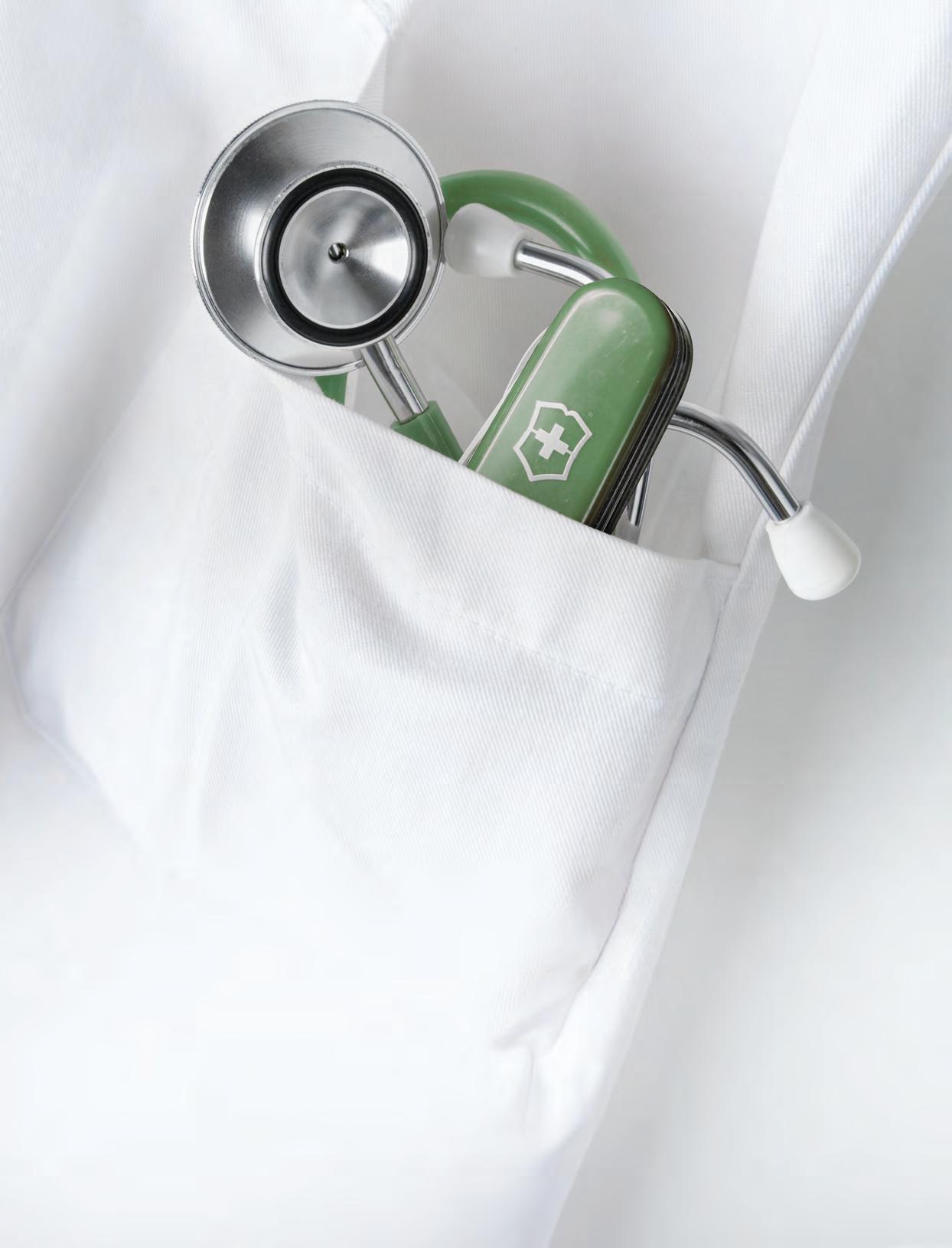
4 minute read
THE SWISS ARMY KNIFE OF MEDICINE
Due to their remote location, rural health professionals are forced to upskill rapidly and demonstrate their versatility. Could rural training hubs help address rural staffing shortages and foster clinicians’ adaptability?
Doctors in rural New Zealand say they are always impressed by how quickly the remote location forces them to broaden their practical skillset.
Reacting to wildly different situations quickly builds confidence and requires them to take charge sooner than they might otherwise.
“We are the Swiss Army Knife of medicine,” rural doctor Jonathan Wills says.
“It is challenging but rewarding work. You will have babies with fevers, end-of-life care, and patients at Trauma 1 and 2 all in the same day.
“It is up to you to manage, treat and care for that range. You are exposed to a great deal more than a standard round in a city hospital.”
“There is a degree of autonomy that comes with the role, which makes for good medicine and good doctoring.”
Those running rural health services agree and there are calls for rural hospitals to become early training grounds for new doctors.
Chief Executive of Clutha Health Gary Reed says the ability for staff in rural hospitals to upskill is great and it should be utilised more often by Te Whatu Ora.
“We need to encourage people to head out to the regions and use them as training grounds for doctors, nurses and any form of clinician,” he says.
“The work adds up quickly and our nurses become highly skilled and highly sought after from all the on-hand work they do.
“Nurses will do all sorts of work from triaging to running ECGs and running bloods.
“There is also a lot of respect for the medical staff from the community. The community appreciates what having a doctor in the community means.”
Gore Health Chief Executive Karl Metzler says if a centralised model to hire and assign doctors was employed, the health system could benefit from the rapidly upskilled workforce.
The only thing holding this up, he says, is that working in cities is incentivised.
“Instead we need to be directing resources and dedicating strategies to bring people out to the regions,” he says.
“It makes sense to incentivise people to work where they are short.
“If wages were handled in Wellington and physicians shopped out according to need, we could create a strong health workforce.”
A specialist who has worked across a wide range of rural hospitals is Dr Fazal Mann. Currently he works three days per week in Gore and works the remainder of his time in Christchurch.
“The rural locations have a good bunch of doctors and nurses and that is why they stay,” he said.

“The biggest challenge we have is the lack of funding to keep our staff here forever.
“It makes sense for there to be allowances, or incentives, monetary or training, to work in the rural areas where we desperately need more doctors.”
Mann says workloads in the rural hospitals are getting more demanding and more doctors will be needed.
“People are living longer, not healthier,” he says.
Te Whatu Ora National Clinical Director for Primary and Community Care Sarah Clarke works in a rural hospital and echoes the sentiments of her colleagues.
“I am a city kid who ended up loving rural health and now I practise rurally,” she says.
“It is a fantastic place to practise. You have got the real sense of community who care about you, and you care about them.
“But if you have not been exposed to that then you never know. Rural practice is quite tricky and you need to be able to deal with whatever comes in the door, and that can be things you do not get much exposure to.
“There is a degree of bravery required, and clinical courage, to undertake rural practice, and that can be scary to some.”
Clarke says there needs to be more ways to incentivise doctors and nurses to undertake rural work but warns finances alone will not fill the demand.

“The Rural Sustainability Project gives us this chance to look at this. I do not think we will suddenly get a cavalry charge of SMOs who all want to go work in rural areas even if we incentivised it financially. We need to look carefully at our models of care and think about things like telehealth as an additive.
“It’s not all about money but delivering good medicine.”
Clarke says rural immersion placements have been increasing year on year and she hopes to see more medical students taking up roles in rural hospitals.
“This always increases the chances of people practising rurally,” she says.










